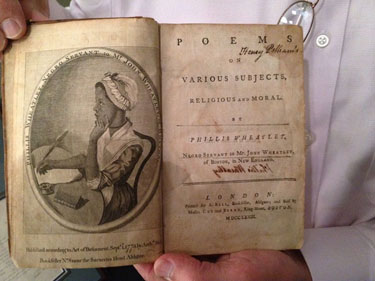
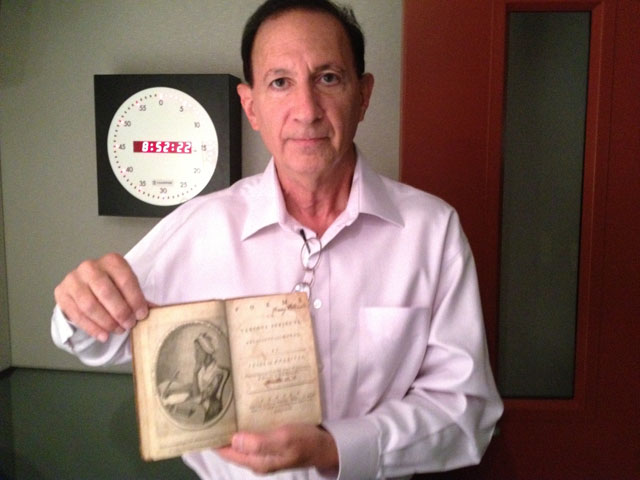
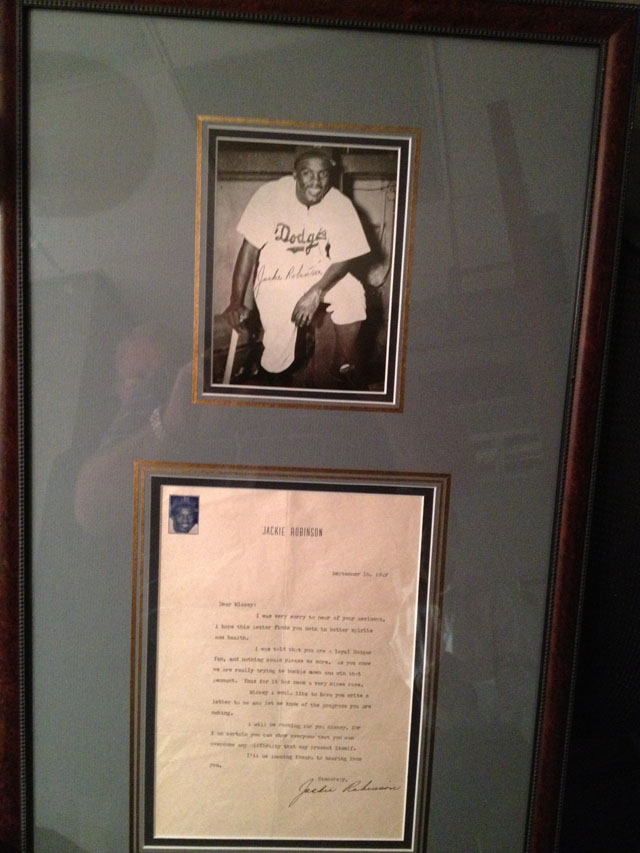
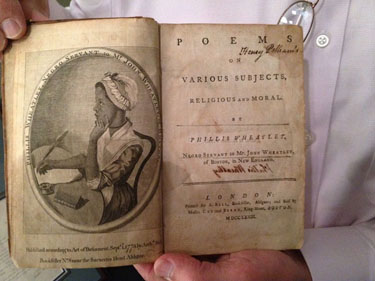
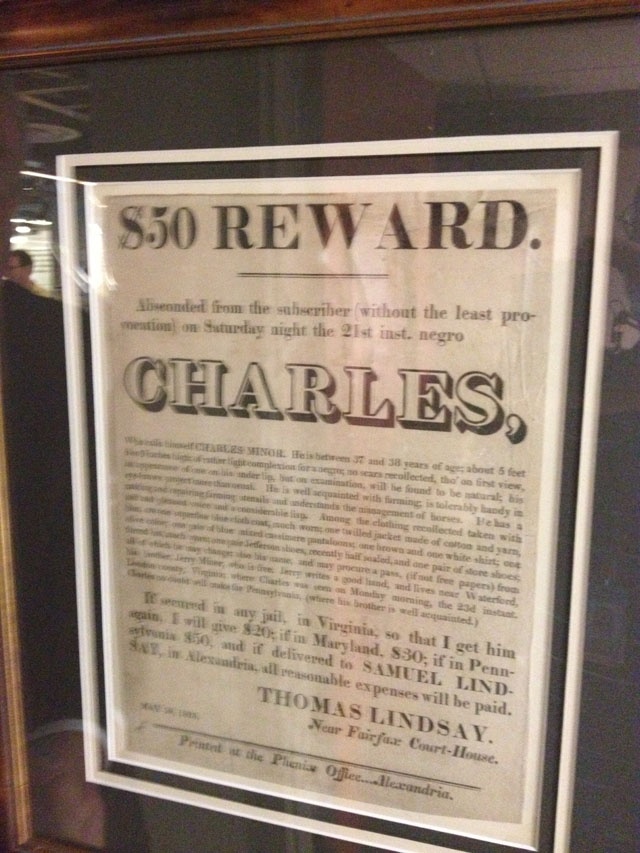
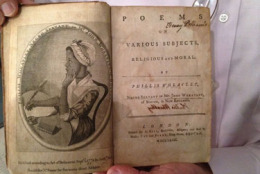
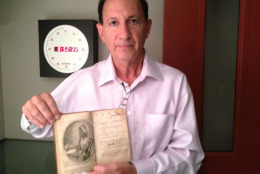
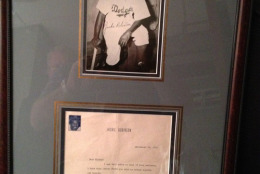
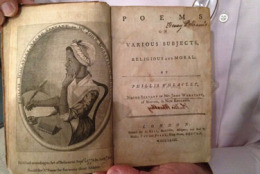
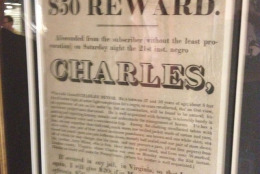
WASHINGTON – Frederick Douglass, Duke Ellington and Jackie Robinson are all key figures in American history. But do you know who Phillis Wheatley or Blanche Kelso Bruce are?
Mark Mitchell does. He has original artifacts from all of them, and many more – including his pride and joy, an original 1773 signed copy of Wheatley’s “Poems on Various Subjects Religious and Moral,” the first book published by an African-American in America.
It is one of 4,000 artifacts he has collected over the years as a challenge presented to him by former Washington Redskins Charles Mann and Art Monk in 1991.
“Art and Charles decided to challenge me to build a comprehensive collection, which is almost an impossibility,” says Mitchell.
That’s when he started going to auction houses and dealers looking for items. Among those he has acquired is a signed letter written by baseball great Jackie Robinson to a sick child in 1949, urging the youngster to “hang in there.”
Mitchell says his interest in black history is tied directly to jazz music. He was inspired by artists such as Duke Ellington, John Coltrane and Miles Davis.
His collection includes the original 78 rpm record of Ellington’s “Double Check Stomp,” used in an Amos and Andy movie in 1930 and signed by Ellington.
He also has a handwritten note from a Prince George’s County slave owner to the National Intelligencer, then Washington’s newspaper of record, asking the Intelligencer to post a notice about an escaped slave. He also has an original copy of the newspaper in which the notice appeared.
“There was nowhere I could take my two children to see the history that I actually acquired,” he says. “But the big (challenge) was to try and educate the public.”
Mitchell used to display many of the artifacts in his Fairfax townhouse. But now he has put them in protective storage while he works out a deal with a museum to display them. He says he is negotiating with two of them, including the National Museum of African American History, which is scheduled for completion in 2015.
But for now, they’re available online at http://www.africanamericancollection.com.
Follow @WTOP on Twitter.







